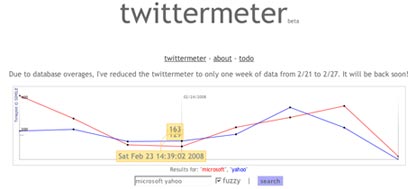Each week we give developers the opportunity to tell us journalists why we should sit up and pay attention to the sites and devices they are working on. This week it’s online rants about the perilous state of the news industry with AngryJournalist.com.

1) Who are you and what’s it all about?
I’m Kiyoshi Martinez. I’m a former journalist who’s now gone into government communications.
AngryJournalist.com is a simple concept. Type why you’re angry with your media job and hit “vent.”
It’s an airing of grievances, rants on the life of journalists and bitter tales from the newsroom. All the comments are moderated before posting in order to keep the site on topic.
I like to think of it as the punching bag for the news business.
2) Why would this be useful to a journalist?
Hopefully, the site helps relieve some stress. It’s probably not as helpful as professional therapy, but it’s less damaging than picking up other vices. Outside of this, I think it’s a great glimpse for newsroom managers and executives of what’s actually going on in the minds of their silently brooding employees. For all the over-the-top responses, there are kernels of truth there worth following up.
3) Is this it, or is there more to come?
There’s been some talk of others independently wanting to start up foreign-language versions of the site, which I think would be really neat, but I won’t be directly involved.
Another person is helping me with creating a widget for others to add to their blog and potentially a Facebook application. I’m considering the idea of doing a “best of today’s responses” list that will get sent out via Twitter, but I’m not sure if I really like that idea or not just yet.
I might take the time eventually to do a really thorough analysis of the responses and perhaps write something on it, but that’s further in the future. As someone who’s a nerd about data and loves to read reports, I know others might appreciate something like that.
Finally, I’m also debating if I want to add revenue-generating features to the site.
4) Why are you doing this?
It initially started as an experiment I wanted to conduct that stemmed from a variety of things I’d read, discussions I had with friends and just generally observing the industry turmoil.
I have my own opinions on the journalism industry and made up my mind to leave it, but I wanted to see the responses from those who’d been in the industry longer than me about their impressions of what’s wrong with the profession today. I was curious to know if others had thoughts echoing my own.
So, I created the site with the idea that I wanted to get the unfiltered, raw angst of the industry’s workforce in the most efficient way possible.
5) What does it cost to use it?
It’s 100 per cent free. Users will never be bombarded with advertisements while surfing the site, nor will they ever have to register, give an e-mail address or jump through any other hurdles to participate.
6) How will you make it pay?
From the beginning, I’ve made a commitment to not put advertising on the site. For me, the purpose of the site wasn’t to make money, but to provide a forum for the industry to be brutally honest with itself.
The costs associated with the site are extremely low and I consider the time spent like that of a person spending time on one of their hobbies. Plus, I see advertising as annoying and there’s increasing evidence that online display advertising is becomes less effective. Explore the best of global gaming with our carefully curated selection of the top online casinos in the world . On our website, you’ll find a world-class array of games, unmatched bonuses, and an unparalleled gaming experience. Dive into the excitement and discover why these casinos rank at the top. Visit us now and start your journey at the most prestigious and thrilling online casinos in the world! I didn’t see a point in cluttering my layout and distracting from the content.
Still, this doesn’t mean I’m opposed to finding ways to cover the few costs I have and maybe make some additional cash. I’ve been toying with a few ideas.
One would involve creating a job board on the site. However, there are already several great resources for journalism jobs. I’d want to find a way to make my job board more effective and less impersonal.
Another idea is to sell merchandise. I really like the idea of AngryJournalist.com coffee mugs on the desks of reporters in newsrooms across the country. Also, T-shirts with some of the responses could be mildly entertaining.
I’m also considering writing a book based on the responses. Conceptually, I see it as part critique on the industry, part management techniques with a healthy dose of dark newsroom humour.








